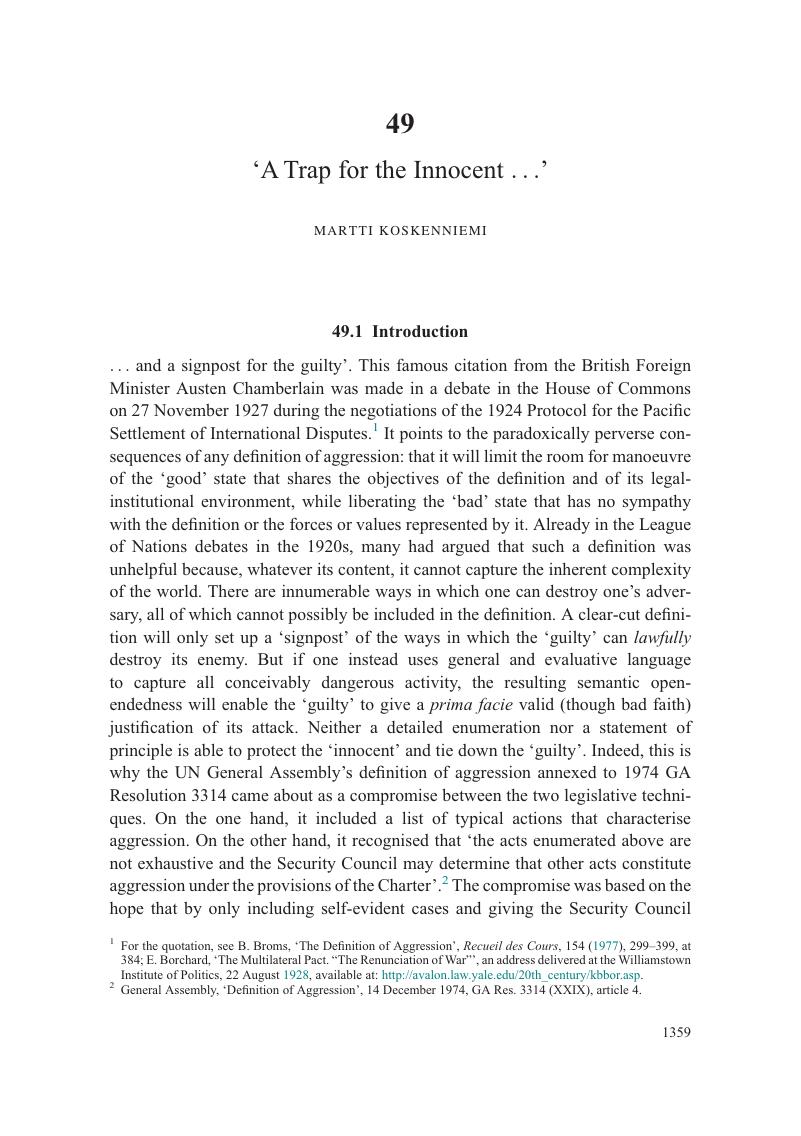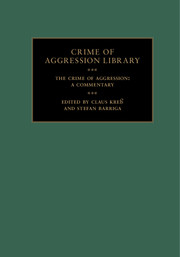Book contents
- The Crime of Aggression: A Commentary
- Crime of Aggression Library
- The Crime of Aggression: A Commentary
- Copyright page
- Contents
- Contributors
- Foreword
- Acknowledgements
- Introduction: The Crime of Aggression and the International Legal Order
- Part I History
- Part II Theory
- Part III Crime of Aggression under Current International Law
- Part IV Crime of Aggression and National Law
- Part V Crime of Aggression and the Future World Order
- A. Actors’ Views
- B. Scholarly Reflections
- 49 ‘A Trap for the Innocent …’
- 50 Unjust War and the Crime of Aggression
- 51 What is the Specific Evil of Aggression?
- 52 The Crime of Bootstrapping
- 53 Amending the Crime of Aggression under the Rome Statute
- Epilogue. The Long Journey to Kampala: A Personal Memoir
- Index
- References
49 - ‘A Trap for the Innocent …’
from B. - Scholarly Reflections
Published online by Cambridge University Press: 06 April 2017
- The Crime of Aggression: A Commentary
- Crime of Aggression Library
- The Crime of Aggression: A Commentary
- Copyright page
- Contents
- Contributors
- Foreword
- Acknowledgements
- Introduction: The Crime of Aggression and the International Legal Order
- Part I History
- Part II Theory
- Part III Crime of Aggression under Current International Law
- Part IV Crime of Aggression and National Law
- Part V Crime of Aggression and the Future World Order
- A. Actors’ Views
- B. Scholarly Reflections
- 49 ‘A Trap for the Innocent …’
- 50 Unjust War and the Crime of Aggression
- 51 What is the Specific Evil of Aggression?
- 52 The Crime of Bootstrapping
- 53 Amending the Crime of Aggression under the Rome Statute
- Epilogue. The Long Journey to Kampala: A Personal Memoir
- Index
- References
Summary

- Type
- Chapter
- Information
- The Crime of AggressionA Commentary, pp. 1359 - 1385Publisher: Cambridge University PressPrint publication year: 2016



